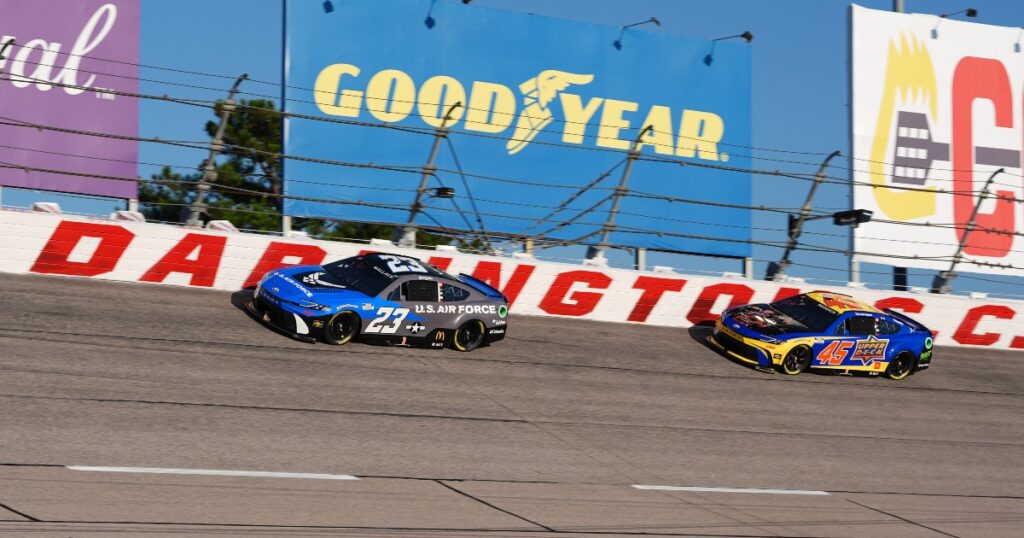When 23XI Racing and Front Row Motorsports filed its antitrust lawsuit against NASCAR last October, they accused the sanctioning body and its CEO Jim France of “unlawful monopolization of premier stock car racing in order to enrich themselves at the expense of the premier stock car racing teams.” Late Monday night, NASCAR filed its response opposing the teams’ new preliminary injunction request.
In the 34-page document, NASCAR argued once more that 23XI and FRM do not have a federal antitrust case. The sanctioning body stated it is not a monopoly because it allows teams to compete on the CARS Tour, the Late Model touring series owned by former Cup Series winners Dale Earnhardt Jr., Jeff Burton, Kevin Harvick and Trackhouse Racing owner Justin Marks.
NASCAR added in its response, “In addition to the long list of exceptions, which include every major known racing organization and sanctioning body in North America, the Goodwill Provisions in the 2016 and 2025 Charters also allow Team Owners to seek NASCAR’s approval to race in other series.” Furthermore, NASCAR said that 23XI and FRM have never asked to race anywhere else concurrent to the Cup Series.
“NASCAR has never withheld approval from any Charter holder (including direct and indirect Team Owners, as defined by the 2016 and 2025 Charters) to race in any other stock car series or any other racing series,” the filing stated, via Matt Weaver of The Sporting News.
NASCAR fires back at 23XI, FRM
23XI and Front Row have claimed that the merger of International Speedway Corp into the league itself — thus preventing other racing series from running at those racetracks — was an example of anticompetitive behavior. NASCAR addressed the teams’ claim:
“With respect to the tracks that NASCAR owns, the Supreme Court has ‘long and emphatically rejected’ the argument (which Plaintiffs advance) that a business must allow a rival to ‘piggyback’ on its investments. NASCAR’s unilateral decision to use its own tracks exclusively, even if true, is essentially ‘per se lawful’ or ‘presumptively legal’ and is supported by substantial procompetitive benefits.
“The majority of NASCAR’s contracts with (Speedway Motorsports) are for one or two years which thus do not have a significant exclusionary effect. They also have procompetitive benefits.”
NASCAR added that the IndyCar Series and CARS Tour are examples of rival series that do compete on NASCAR owned tracks. In response to claims that preventing the Next Gen car from being raced outside the Cup Series is a form of anticompetitive action, NASCAR argued it “is allowed to protect that investment and intellectual property, and protect against consumer confusion and free-riding by preventing the car from being raced elsewhere. This practice is at the very heart of the doctrine that “[e]ven a monopolist generally has no duty to share (or continue to share) its intellectual or physical property with a rival.
“It is a hallmark of major racing series to have different (and specialized) cars, as Plaintiffs’ expert and other witnesses have admitted, and a point of competition between them, not an anticompetitive act.”
A hearing for the new injunction request is set for Aug. 28. The case goes to trial Dec. 1.
Read the full article here



